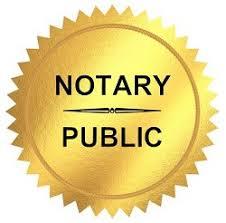Competent Conveyancer: Helping With Smooth Property Deals
Competent Conveyancer: Helping With Smooth Property Deals
Blog Article
Demystifying Notarial Work: Streamlining the Duty and Significance of Notaries
Their function, usually shrouded in enigma for lots of, carries significant weight in ensuring the legitimacy and integrity of important papers. By deciphering the complexities surrounding notarial practices and shedding light on the significance of their acts, a clearer understanding arises of the vital duty notaries play in upholding the material of contractual and lawful arrangements.
The History of Notarial Work
Exactly how did notarial work evolve in time to end up being an important part of lawful and business transactions? The background of notarial job days back to old civilizations, where scribes played a crucial duty in recording crucial info and validating documents. As societies progressed, the need for an extra formalized system to make sure the credibility of contracts occurred. This led to the growth of notaries, individuals selected by the state to work as objective witnesses in legal issues.
During the Center Ages, notaries obtained prominence in Europe, with their features expanding to include preparing lawful papers, certifying signatures, and protecting records. The surge of worldwide trade further emphasized the importance of notarial job in validating contracts and agreements across boundaries.
In the modern-day period, notaries remain to play an important function in lawful and business deals by confirming identifications, validating the credibility of papers, and stopping fraudulence. Their duty in licensing the validity of contracts adds a layer of safety and trust fund to the ever-evolving landscape of commerce and law.

Duties and Obligations of Notaries
Notaries play an essential duty in confirming the authenticity of records and the identification of signatures. One of their key responsibilities is to witness the finalizing of essential papers, such as wills, contracts, and actions, to guarantee that all events are getting in right into arrangements knowingly and willingly.
They accredit copies of initial files, providing guarantee to establishments that the copies are real replicas of the originals. In general, the responsibilities and obligations of notaries are essential in protecting the integrity and legality of numerous documents and deals - Deceased Estate.
Notarial Certificates and Signatures
Exhibiting meticulous focus to detail, notarial certificates and trademarks act as necessary components in verifying the authenticity of lawful files. Notarial certifications generally contain essential details such as the date of notarization, the names of the signatories, a description of the file, and the notary's main seal. These certifications give a clear record of the notarial act, guaranteeing that the record can be quickly recognized and traced back to the notary who oversaw the process.
Signatures play a pivotal role in notarial job, as they represent the agreement and approval of the celebrations entailed. Notaries very carefully witness the finalizing of files to validate the identification of the signatures and verify that they are authorizing of their navigate to these guys own free will. By affixing their official seal and trademark to the file, notaries certify that the necessary procedures have actually been followed and that the document is valid and enforceable.
Essentially, notarial certificates and trademarks are the hallmark of authenticity in legal deals, providing guarantee to that site all celebrations involved that the documents are legitimate and binding.
Significance of Notarial Acts

Notarization Refine Discussed
Discussing the registration procedure gives clearness on the essential steps entailed in validating lawful records. The notarization process typically starts with the specific presenting the paper to a notary public. The notary then validates the endorser's identity with acceptable identification methods. Once the identity is verified, the notary guarantees that the private signing the record does so voluntarily and without any type of threat.

Conclusion

Notarial certificates usually include essential information such as the day of registration, the names of the signatories, a description of the record, and the notary's official seal. These certifications give a clear record of the notarial act, guaranteeing that the document can be easily identified and traced back to the notary that managed the procedure.
By attaching their official seal and signature to the document, notaries accredit that the needed procedures have been adhered to and that the paper is valid and enforceable.
By verifying the identity of the signatures, confirming their determination to enter right into the contract, and accrediting the day and place of the signing, notaries play an essential duty in upholding the legitimacy of lawful records.After the record is signed, the notary will certainly attach their official seal or stamp onto the file.
Report this page